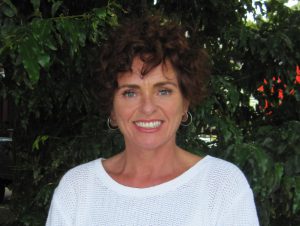We continue sharing stories to help your early learning service compile its Reconciliation Action Plans (RAP). Writer Margaret Paton spoke to CELA’s Learning and Development Specialist, Kerrie Maguire, who offers starting points for services to begin to acknowledge and respect Aboriginal Australia. This article is presented in Kerrie’s words, shared directly with you.
Begin the journey
 Kerrie Maguire
Kerrie Maguire
You might think a Reconciliation Action Plan (RAP) looks like hard work. There’s no mandatory deadline to create a RAP for your service, but our experience with many early learning and middle years services says that once your RAP is done you really will be glad you did. If your service already has a RAP, remember the idea is to review it annually, which will fit beautifully with the regular review I’m sure you’re doing for your Quality Improvement Plan for the National Quality Framework!
A RAP lets you begin the journey to understand what is true reconciliation and how you can support this movement. It’s is a great way to start exploring Aboriginal Australia as part of the process is a survey for all staff to explore their own knowledge and understanding about reconciliation. This creates a baseline for professional and personal growth.
(scroll down to the video link)
An enduring culture
Aboriginal culture is one of the world’s longest enduring human records, dating back more than 80,000 years. It is important educators develop a sound understanding of our shared history and colonisation’s impact in the past, present and future on Aboriginal Australia.
As well, these cultures are diverse and continue to evolve. Being Aboriginal means something different to each child and their family – it isn’t about a person’s skin colour. It’s about whether a person identifies as an Aboriginal or Torres Strait Islander.
Your QIP helps launch your RAP
Your existing process to develop and update your Quality Improvement Plan (QIP) can be a great launching point for stronger initiatives such as developing a RAP. Take small steps, build knowledge and engage your whole team.
RAPs are an excellent portal to allow services to set actions and deliverables and provide curriculum resources. As part of this process, educators and services are supported through online forums.
Listening
Actively listening to families is vital and even apparently unrelated actions can lead to unexpectedly positive outcomes for reconciliation.
One service I worked with was located on the grounds of a housing estate and there were no community areas for families to meet and gather.
One day a father stated that a disused area at the service would make a great garden area for the community. We immediately began discussing with our families what this would look like.
We sought funding, consulted and worked with families to create a beautiful garden area that honoured our Aboriginal and Torres Strait Islander families.
Reconciliation can be about the big things but also the small day to day things that we do – like actively listening and consulting with Aboriginal families, and truly representing them and their voices.
– Kerrie Maguire
Consider another starting point
Through CELA’s professional development workshops, I give you a starting point to move forward if you have committed to a RAP, are considering starting one or are unsure of where to begin. We can support your service through your RAP journey.
I do this by providing a foundation of why, where and how to begin and to support true reconciliation and meaningful initiatives within your service. I help you create a RAP that builds children’s knowledge and understanding around the first peoples of our country. I ask services to consider how their initiatives contribute to the Aboriginal community.
The focus is to build your own knowledge, gain clarity about why you think it’s important to acknowledge and celebrate Aboriginal Australia and how your actions and initiatives can benefit the Aboriginal community. Personally, I find services and individuals need a starting point and to be guided to resources and information so they can move forward without the common fear of doing the wrong thing or causing offence.
I’ve delivered training in Understanding Reconciliation since 2006 through my own business, Gangari, and now in my role with CELA through our course, ‘Acknowledging and Celebrating Aboriginal Australia – A Starting Point’.
Key steps for your RAP
The Narragunnawali RAP plan portal is your go-to source for early learning and middle years children’s services. Narragunnawali, (pronounced narra-gunna-wally), means alive, wellbeing, coming together and peace. The word comes from the language of the Ngunnawal people who are the traditional owners of the land on which Reconciliation Australia’s Canberra office is located. You can download a flyer from Narragunnawali here.
Here are my key steps for developing a RAP:
- establish a RAP Working Group
- complete the Reflection Survey
- write a Vision for Reconciliation
- add RAP actions, and
- submit the RAP review.
Find out more about the central themes of Relationships, Respect and Opportunities within early learning services on this video.
How your RAP supports the national quality standards
The NQS encourage services to think more critically around the importance of acknowledging and respecting Aboriginal and Torres Strait Islander cultures.
The RAP doesn’t just benefit your service, but has many benefits for all children, families and communities. If a RAP isn’t already on your radar, it’s time to put it there.
Resources and related articles
About CELA
Community Early Learning Australia is a not for profit organisation with a focus on amplifying the value of early learning for every child across Australia - representing our members and uniting our sector as a force for quality education and care.